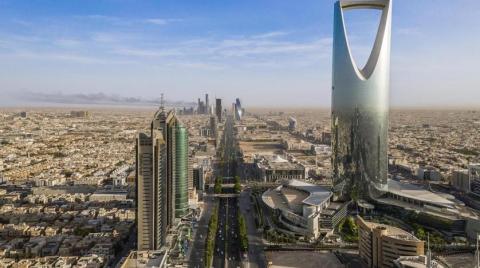
Until recently, upon arrival at Riyadh airport, while the border officers checked their visas, visitors had the chance to rate the quality of the service in a way that is reminiscent of the sci-fi Netflix series “Black Mirror.” Placed in front of the passport control counters, travellers were faced with three emoji buttons — from angry to happy, coloured red, yellow and green.
This seemingly insignificant detail is one of endless instances that attest to the openness that exists in the Gulf, including among Gulf citizens, to embrace the transformative but also disruptive power of technology and innovation, in business and daily life. Saudi Arabia, which has an internet penetration of 91 percent, leads the region when it comes to users of the major social media networks, such as Facebook, YouTube, Twitter and Instagram, with more than 75 percent of the population active social media users. According to data released earlier this year, Saudi Arabia ranked fourth worldwide — after the US, Japan and the UK — in the overall number of Twitter users, with 13.8 million, ahead of far more populous nations such as India, Brazil and Turkey. The past few years have witnessed Saudi government officials take to their personal Facebook and Twitter accounts to make official announcements and promote new government programs.
An important study released a few days ago, however, is a reminder that there is a lot to be done by Arab governments and institutions to foster technological innovation and capitalize on that receptiveness. This year’s edition of the Global Innovation Index, an annual study published by Cornell University, INSEAD Business School and the World Intellectual Property Organization, shows that Arab states, including the richer Gulf Cooperation Council members, lag far behind on technological innovation compared to other states with similar GDPs.
In terms of the overall ranking of the GCC states in the index, the UAE comes in 38th between Bulgaria and Poland; Qatar, the world’s richest country per capita, stands at 51st; Kuwait and Saudi Arabia are 60th and 61st respectively; Oman 69th; and Bahrain 72nd. All GCC states, including the UAE, the top performer within the bloc, fare below expectations considering their level of development.
Among all Arab states featured in the study, Yemen comes last, in 126th, while other Arab countries such as Algeria, Egypt and Lebanon stand at 110th, 95th and 90th respectively. Others such as Libya, Iraq and Syria were not included in the study, but it is not difficult to foresee what their results would otherwise be like. There are no Arab representatives among the world’s top 100 clusters of scientific and technological activity, by patent and publishing performance.
The 2018 Global Innovation Index is a reminder there is a lot to be done by Arab states to foster technological innovation.
Dr. Manuel Almeida
On the more positive side in the perspective of Arab states, Tunisia was ranked the second most innovative country in Africa, 66th in the world, and was one of eight economies that joined the group of “innovation achievers.” There has been plenty of talk about a new wave of innovation coming from Tunisia, which has witnessed the rise of a very dynamic startup scene. But, without the right environmental and institutional support, which will be difficult to guarantee considering the perennial political instability and constant government reshuffles, much of this potential could go to waste.
This year’s edition of the index, which is titled “Energizing the World with Innovation,” focuses on the importance of technological innovation to meet the unprecedented levels of energy demand, and the related matters of energy efficiency and the transition to alternative sources of energy. The topics addressed by this year’s report also touch on the issue of economic diversification, which is important across the region but particularly salient in the energy-rich GCC states.
The UN Sustainable Development Goals summarize the important ties between technological innovation, resource efficiency and development as: “Technological progress is the foundation of efforts to achieve environmental objectives, such as increased resource and energy-efficiency. Without technology and innovation, industrialization will not happen, and without industrialization, development will not happen.”
The main index is composed of two sub-indexes — the innovation input and innovation output. The first includes five pillars: Institutional capacity, human capital and research, infrastructure, market sophistication, and business sophistication. The second includes two: Knowledge and technology outputs, and creative outputs. The overall index is determined by the simple average of the two.
A few Arab states have identified technological innovation as a fundamental strategic objective. Both the UAE’s Vision 2021 and Saudi Arabia’s Vision 2030 place a lot of emphasis on innovation, defined as key for the success of their respective socio-economic reform programs and for achieving the required diversification goals toward a knowledge-based economy.
In some cases, the issue is not a lack of investment on technological innovation. Neom, Saudi Arabia’s $500 billion industrial and business complex on the Red Sea, envisioned as a futuristic hub and ideal ecosystem for technological innovation and entrepreneurship to thrive, is a case in point.
As the Global Innovation Index concludes, it is essential to understand how investment in innovation can generate a corresponding output. In this process, it is also advisable to keep in mind that perseverance matters. Creating the appropriate environment and prevailing mentality, with a significant number of productive and highly qualified specialists, will always be a slow and gradual process until it translates into consistent results.
• Dr. Manuel Almeida is a political analyst and consultant focusing on the Middle East. He is the former editor of the English online edition of Asharq Al-Awsat newspaper and holds a Ph.D. in International Relations from the London School of Economics and Political Science. Twitter: @_ManuelAlmeida
Disclaimer: Views expressed by writers in this section are their own and do not necessarily reflect Arab News" point-of-view










